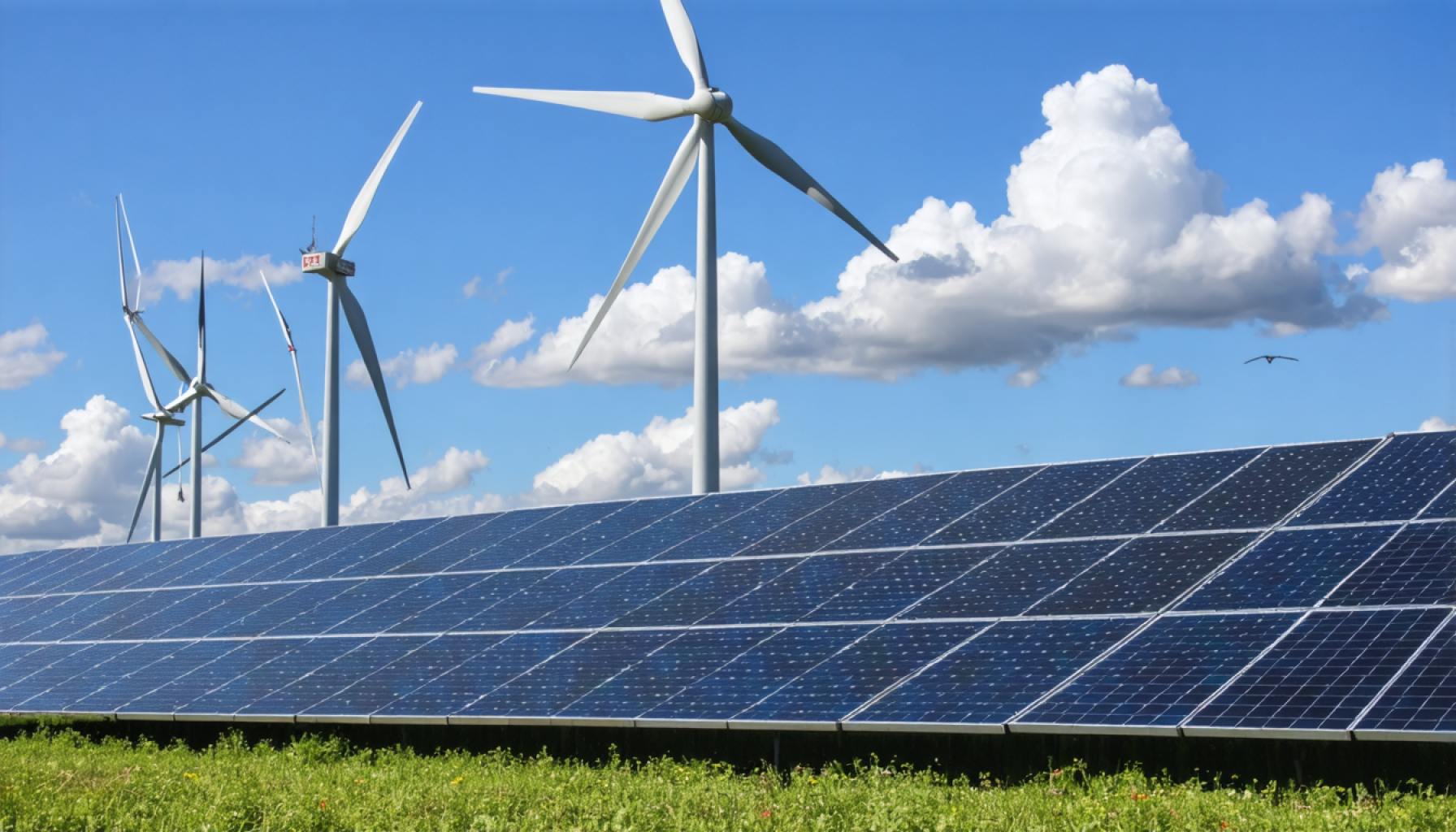- Amid political and market fluctuations, the push for a low-carbon future continues, championed by clean energy advocates.
- Despite shifts towards fossil fuels, exemplified by recent U.S. political events, leaders like ACEN Corp.’s CEO Eric Francia remain committed to sustainability.
- Renewable energy companies face market challenges, with stock prices under pressure, while fossil fuel investments experience a temporary resurgence.
- ACEN Corp. aims to expand its renewable energy capacity significantly, demonstrating resilience and commitment to sustainability.
- Eric Francia emphasizes that the transition to sustainable energy is an irreversible journey, grounded in the scientific reality of climate change.
Beneath the buzz of political rhetoric and fluctuating stock prices, a silent revolution maintains its steady course—a quest for a low-carbon future, led by unwavering clean energy advocates. Despite the swirling currents of U.S. political influence, driven most recently by Donald Trump’s reemphasis on fossil fuels, industry leaders like ACEN Corp. CEO Eric Francia remain unfazed in their pursuit of sustainability.
A vivid spectacle recently unfolded in the U.S., where supporters of the former president proudly displayed signs inscribed with “drill, baby, drill” at a campaign event. This rallying cry echoes a surge in fossil fuel support, marked by Trump’s decisive move to ease restrictions on land and water for oil and gas extraction. Such actions, bolstered by rhetoric labeling renewable solutions as “ridiculous,” have painted a picture of uncertainty for the clean power sector.
In a turbulent market, stock prices of renewable firms have been under duress, while fossil fuel companies see a bullish resurgence. The global capital landscape has tilted momentarily towards carbon-heavy investments, as giants like BP, once champions of low-carbon initiatives, pivot back to conventional energy with billion-dollar commitments in places like Iraq.
Yet, amid these shifts, there are voices like those of Eric Francia’s, resonating with quiet resolve. Beacons of sustainability, they navigate the headwinds, driving projects that promise cleaner energy paths. ACEN stands as a testament to this resilience, closing 2024 with an impressive 7 GW of renewable energy capacity, with aspirations to triple it by the decade’s end.
Francia articulates a vision deeply anchored in an unyielding belief: the transition to sustainable energy is an irreversible journey. While market dynamics flex and political allegiances sway, the science of climate change dictates a singular truth: the future belongs to renewables, underscored by a collective commitment from eco-conscious enterprises.
As the world mulls over the complexities of energy policy and economic strategy, a clear message emerges for audiences near and far—beyond the noise and the numbers, the march towards a sustainable, low-carbon future is not just a choice, but an imperative woven into the fabric of global progress.
The Unstoppable Rise of Renewable Energy: What Lies Ahead
Introduction
In an evolving energy landscape marked by political and economic unpredictability, the push for a low-carbon future remains steadfast. While traditional fossil fuel industries have temporarily regained favor, the commitment to renewable energy endures. Below, we delve into the transformative journey of clean energy, exploring its potential, challenges, and the path forward.
Market Forecasts & Industry Trends
The global renewable energy market is poised for significant growth. According to the International Renewable Energy Agency (IRENA), renewable energy capacity worldwide is expected to exceed 10,000 GW by 2030. Analysts project increased investments in solar, wind, and battery storage technologies, driven by declining costs and enhanced efficiency.
Challenges & Limitations
Despite its potential, the renewable energy sector faces hurdles:
– Intermittency Issues: Challenges with consistent energy supply due to the variable nature of solar and wind power.
– Infrastructure Needs: Upgrading grid infrastructure to manage renewable integration is imperative.
– Policy Fluctuation: Political shifts can impact support and investment incentives for renewable projects.
Pros & Cons Overview
Pros:
– Sustainability: Reduces carbon footprint and mitigates climate change impacts.
– Cost-effective: Long-term savings with decreasing technology costs.
– Job Creation: Expands employment in installation, maintenance, and technology innovation.
Cons:
– Initial Costs: High upfront investment for infrastructure.
– Land Use: Large-scale renewable installations require significant land area.
– Resource Limits: Dependence on rare earth materials for technology production.
Security & Sustainability
Renewable energy enhances energy security by diversifying energy sources. Unlike finite fossil fuels, renewable sources such as the sun and wind provide abundant, inexhaustible energy. Sustainability efforts are bolstered by initiatives to recycle renewable technology components and utilize sustainable materials.
Controversies & Counterarguments
Critics argue that renewable energy can’t yet fully replace reliable, on-demand power from fossil fuels. However, advancing technology and grid innovation continue to address these reliability concerns. Moreover, geopolitical reliance on oil can spur conflicts, whereas renewable energy supports energy independence.
How-To Steps & Life Hacks for Supporting Renewable Energy
1. Switch to Green Energy Providers: Opt for electricity suppliers that offer green energy plans.
2. Invest in Home Solar Panels: Consider solar installations to reduce energy bills and support local clean energy initiatives.
3. Advocate for Policy Change: Engage with policymakers about the importance of sustainable energy policy.
Real-World Use Cases
Innovative use cases abound, such as ACEN Corp.’s progress in bringing renewable energy to emergent markets. Their focus on developing 7 GW capacity showcases the role corporations can play in driving clean energy.
Insights & Predictions
Market analysts anticipate that renewable energy, bolstered by policy shifts like the U.S. Inflation Reduction Act, will dominate future energy strategies. Companies pivoting to clean energy can expect long-term competitive advantages and alignment with environmental goals.
Conclusion & Actionable Recommendations
To accelerate the renewable transition:
– Support Local Policies: Encourage local government to prioritize renewable projects.
– Educate Communities: Spread awareness of renewable benefits.
– Monitor Technological Advances: Stay informed on tech improvements for personal and business energy solutions.
For readers seeking deeper knowledge and involvement in the renewable energy movement, staying updated with initiatives and companies like ACEN is essential. Engage with global platforms like the International Renewable Energy Agency to keep abreast of developments and opportunities.
Together, we can contribute to a sustainable, low-carbon future.
